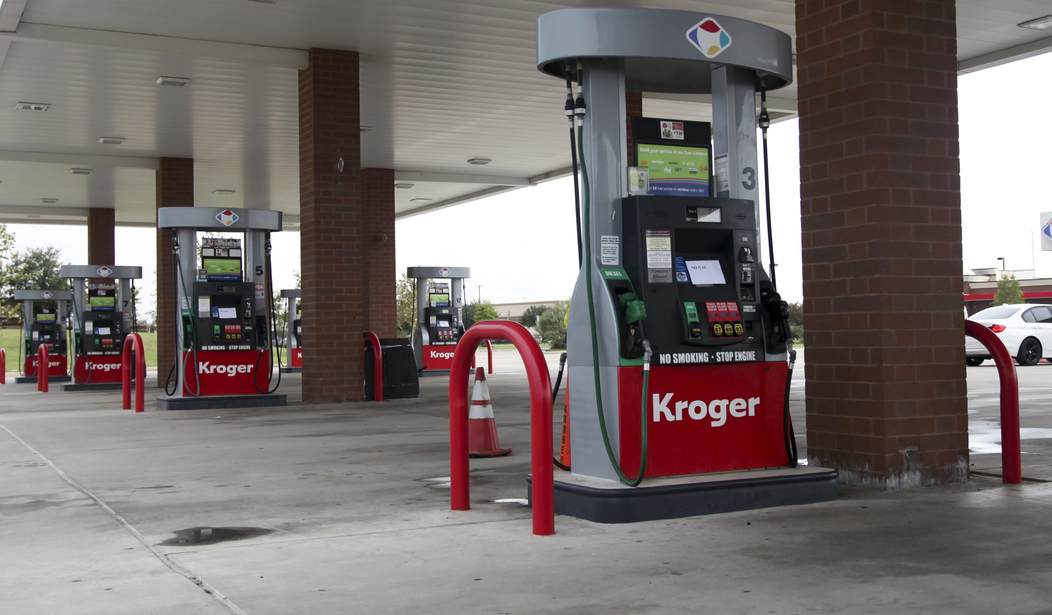Ugh!
As if a humongous hurricane battering the Gulf Coast wasn’t enough of a problem, now gas prices are surging to their highest level in two years.
But don’t listen to the scaremongers. Sticker shock at the pump is most likely a temporary phenomenon. Unlike the storm itself, and the associated devastation, in a year you won’t remember the surge in gas prices.
That may be hard to swallow when the storm is supposed to have knocked out refinery after refinery, and the total cost to the U.S. economy is projected to hit $100 billion.
But it shouldn’t surprise anyone. It’s economics 101, and that’s something many politicians won’t tell you.
Part of the story is the maxim: The cure for high prices is high prices. It means the profit incentive will motivate refiners to get their operations up and running again in short order.
“It is a question of when — not if — these refineries and other infrastructure starts resuming normal operations,” says Max Pyziur, director of downstream projects at the Washington-based Energy Policy Research Foundation. “I think you won’t see much need to rebuild; rather, it’ll be just a matter of getting back to working normally.”
In other words, the problem isn’t permanent, not by a long shot.
Here’s the detail.
Futures contracts for reformulated gasoline were recently changing hands for close to $2 a gallon on the CME. That’s up from around $1 as recently as early 2016. Prices don’t include taxes that get included when you pay at the pump.
The reason for the price jump is simple. A significant share of the nation’s refining capacity closed due to the storm. Late Wednesday, energy specialist publication Platts estimated that more than one-fifth of U.S. refining capacity, 22 percent, to be exact, has been shut down. So expect production of gasoline to drop by a proportionate amount.
Lower supply of gas when the demand is the same will mean higher prices.
Meanwhile, the price of crude oil has dropped.
“As refineries have been shut down (due to damage, the inability for workers to reach them, or the inability to get gasoline out of them) a lack of demand for oil has been created,” writes Matthew Peterson, chief wealth strategist for LPL Financial, in a recent report. “In turn, this has increased the amount of oil in storage waiting to be refined, thereby depressing prices.”
Prices for light sweet crude futures were recently trading at $46 a barrel, down from around $54 in April.
But here is the magic of capitalism. Falling prices for crude and rising prices for gasoline means bigger profits for anyone who can refine the oil. What is known as the crack spread, a measure of the profitability of refining oil into gas, is now wider than it was just a week ago.
Because the crack spread is now bigger, three things will happen to increase supply over the coming weeks.
The first is that refineries that didn’t have their operations interrupted by the storm, such as those in Delaware, will now operate at a “higher run-through rate,” says Pyziur, meaning they will process more oil into gas than previously.
Second, plants that have been interrupted but not severely or significantly damaged will start to operate normally, at least once the workers can make it to the plants, he explains.
Third, “there is the capacity to bring gasoline from northwest Europe,” he says, although there may be some time delay in finding suitable vessels and then sailing them across the Atlantic.
Of course, there are potential problems with plants suffering permanent catastrophic damage. It is worthy of note that the much-publicized Arkema-owned chemical plant in Crosby, Texas, which is said to be in danger of exploding, doesn’t make gasoline but rather organic peroxides, according to the company website. “We do not believe there is any imminent danger, the potential for a chemical reaction leading to a fire and/or explosion within the site confines is real,” says the company.
So without any refineries exploding, the matter of higher gasoline prices should subside over the coming weeks.









Join the conversation as a VIP Member